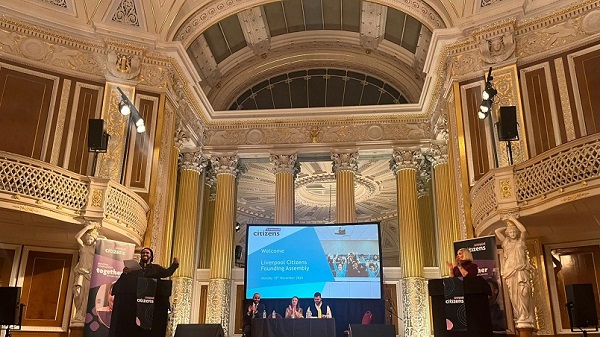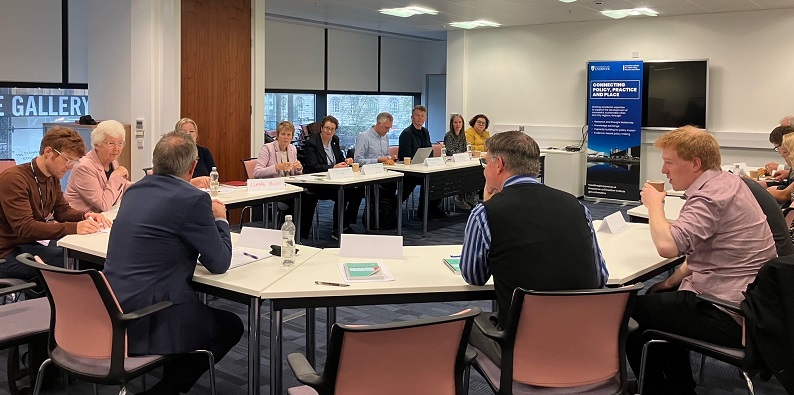-684x355.jpg)
Harnessing regional innovation for a dynamic UK Industrial Strategy
The first in a series of blog posts from Heseltine Institute Policy Analyst Roger Baxter on the UK Government's recent Industrial Strategy Green Paper.\n
Posted on: 27 February 2025

The case for the Northern Arc
Focusing economic policy on the England’s Oxford Cambridge Corridor is not enough. An equivalent concept is needed for the ‘South of the North’. It would be a more realistic proposition with the prospect of early wins.
Posted on: 4 February 2025
The English Devolution White Paper: Our panel of experts responds
Published in December 2024, the long-awaited English Devolution White Paper outlines some of the biggest changes to local government and its relationship with Westminster in half a century.
Posted on: 15 January 2025

Britain must rebuild its institutional muscle
To develop and deliver the necessary projects to meet its growth ambition government will need to strengthen its own executive capacity and 'institutional muscle', alongside devolution to local government. The Ministerial Task Force concept pioneered by Lord Heseltine in Liverpool might provide a model, as would the late Lord Prescott's regional development agencies.
Posted on: 10 January 2025

The English Devolution White Paper: Cautiously radical?
The eagerly-awaited English Devolution White Paper (EDWP) is a curious mixture of continuity, radical reform and a degree of caution. It is simultaneously more ambitious than had been anticipated (on local government reorganisation, for example) and conservative (there is not even a hint of discussion about fiscal devolution). Five key themes emerge from the paper.
Posted on: 17 December 2024

What does it mean to be a citizen? Reflections from the Founding Assembly of Liverpool Citizens
On 18th November 2024, the Founding Assembly of Liverpool Citizens – a new chapter of the national organisation, Citizens UK – was held at the city’s St George’s Hall.
Posted on: 22 November 2024

How can community organising support universities’ connection to place?
Over recent years, there has been an enhanced acknowledgement of the role of universities as anchor institutions ‘rooted in place’ and able to support local priorities.
Posted on: 5 November 2024

Academic-policy engagement: a model for delivering place-based missions?
On 23 September, the Heseltine Institute, City-REDI (City-Region Economic Development Institute) and the Yorkshire and Humber Policy Engagement and Research Network (Y-PERN) hosted a roundtable fringe event at Labour Party conference in Liverpool with the aim of exploring how universities can contribute to place growth.
Posted on: 27 September 2024

What the King’s Speech means for Liverpool City Region
Yesterday’s King’s Speech set out the first pieces of legislation to be brought to Parliament under the new Labour government. The speech included 40 bills covering a wide range of policy areas, but with a particular emphasis on improving economic growth, new infrastructure and energy security.\n\nIn this blog, Cleo Hachem and Tom Arnold highlight the implications for Liverpool City Region in key areas such as economic development, devolution and planning.
Posted on: 18 July 2024
Blog
-684x355.jpg)
Harnessing regional innovation for a dynamic UK Industrial Strategy
The first in a series of blog posts from Heseltine Institute Policy Analyst Roger Baxter on the UK Government's recent Industrial Strategy Green Paper.
Posted on: 27 February 2025